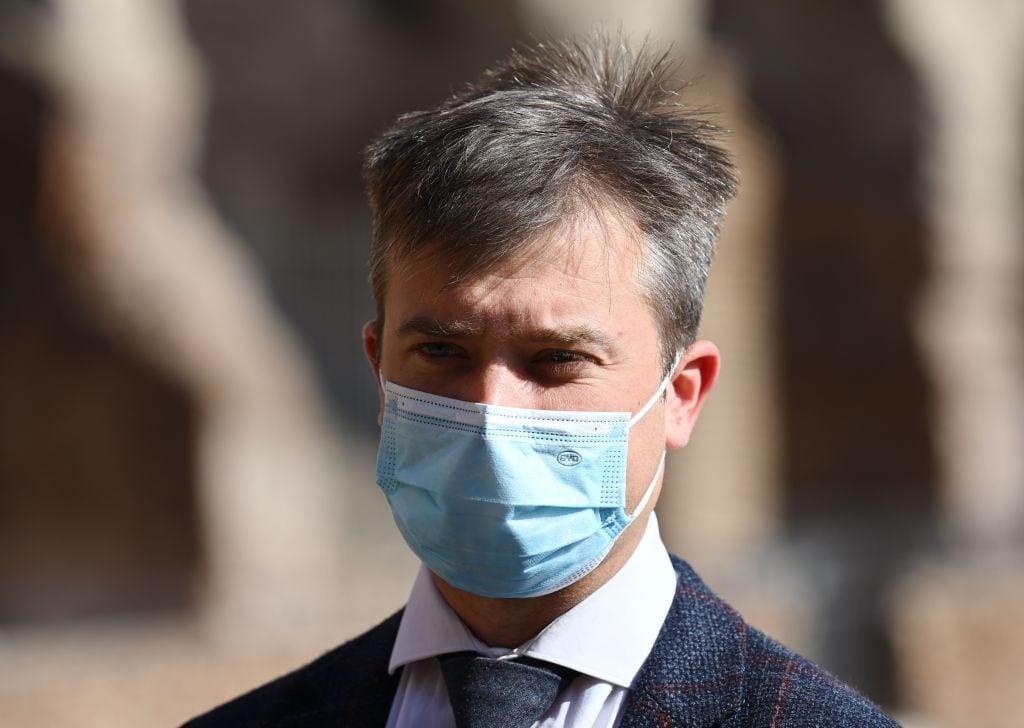Art World
Half the Board Overseeing Pompeii Has Resigned in Protest Against the Hiring of a New Director They Say Lacks Experience
Last month, Gabriel Zuchtriegel was hired to lead the famed archeological site for the next four years.

Last month, Gabriel Zuchtriegel was hired to lead the famed archeological site for the next four years.

Artnet News

Half of the scientific board that oversees the Pompeii cultural heritage site has resigned in protest against the appointment of a 39-year-old German archaeologist as the director of the operation.
In February, Gabriel Zuchtriegel was tapped to lead efforts at Pompeii for the next four years, winning out over 43 other applicants. He comes from Paestum, an expansive complex of ancient Greek ruins in the Campania region of southern Italy, where he became director in 2015 as one of seven foreign-born experts brought in to lead Italy’s museums and cultural sites.
Yet days after his hiring, two of the four members of Pompeii’s scientific committee, which resembles a board of directors, resigned from their posts, citing what they say is the new director’s lack of experience.
“We believe that the minimum conditions for collaborating with [Zuchtriegel] do not exist,” Irene Bragantini and Stefano De Caro wrote in their resignation letter to outgoing director Massimo Osanna, according to the Times.
Il nuovo Direttore di @pompeii_sites è @GZuchtriegel scelto grazie al lavoro di una commissione internazionale, come avviene dal 2014 per tutti i direttori dei grandi musei italiani. Proseguirà a Pompei il lavoro straordinario fatto a @paestumparco pic.twitter.com/JhPs96BJid
— Dario Franceschini (@dariofrance) February 20, 2021
“His CV doesn’t have sufficient depth and it is difficult to see that he has the experience to make decisions and run conservation and restoration where it costs millions and millions but is easy to make mistakes.”
Bragantini and De Caro could not be reached for comment by Artnet News, nor could representatives from Pompeii.
Yet Osanna was quick to defend Zuchtriegel. “He did a fantastic job at Paestum, where there was rain leaking into the museum when he got there,” he said. “He focused on maintenance, doubled the visitors, let them inside temples for the first time and drew in local residents.”
Upon appointing the new director, Italian culture minister Dario Franceschini similarly praised Zuchtriegel’s work at Paestum, saying the young archeologist “did an incredible job.”
“Now it is a model thanks to him,” Franceschini added. “I’m sure he will do very well in Pompeii too.”

The ancient city of Pompeii. Photo by Pier Paolo Metelli courtesy of the Archaeological Park of Pompeii.
Zuchtriegel, whose appointment was seen by many as part of a continued effort to rejuvenate the cultural sector and Pompeii itself, has already turned heads for promising to reimagine what goes on at the site.
Although numerous high-profile discoveries have been made at Pompeii in recent years, including the well-preserved remains of two men and the belongings of a sorcerer, further excavations will be a low priority for Zuchtriegel moving forward, he told the Guardian in an interview.
Instead, he’ll turn to new, less invasive methods such as drones, infrared sensors, and satellites.
“We will not be doing new excavations just for the sake of doing them,” he told the newspaper. “Excavation is always a kind of destruction because you excavate layers and context that you can’t redo, it’s a one-time operation that needs to be done very carefully with everything documented. But we can’t exclude that in the future there will be new methods and new possibilities, so we should also leave something for future generations.”